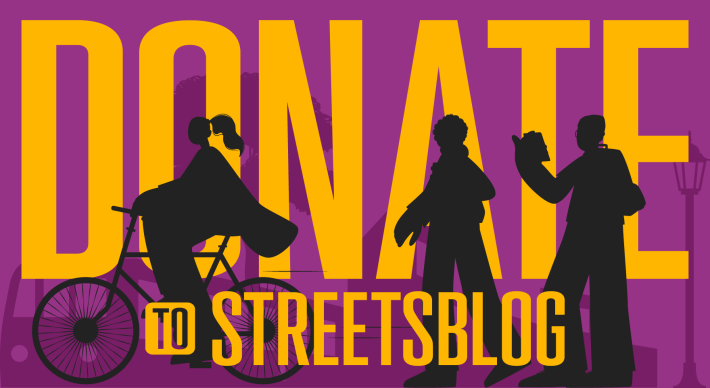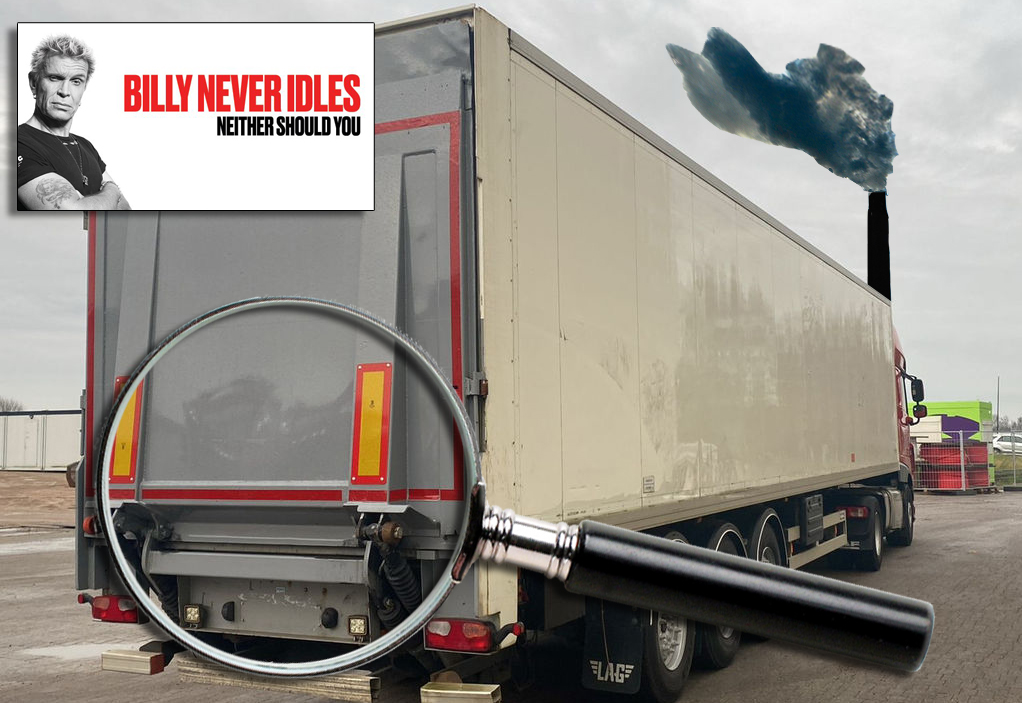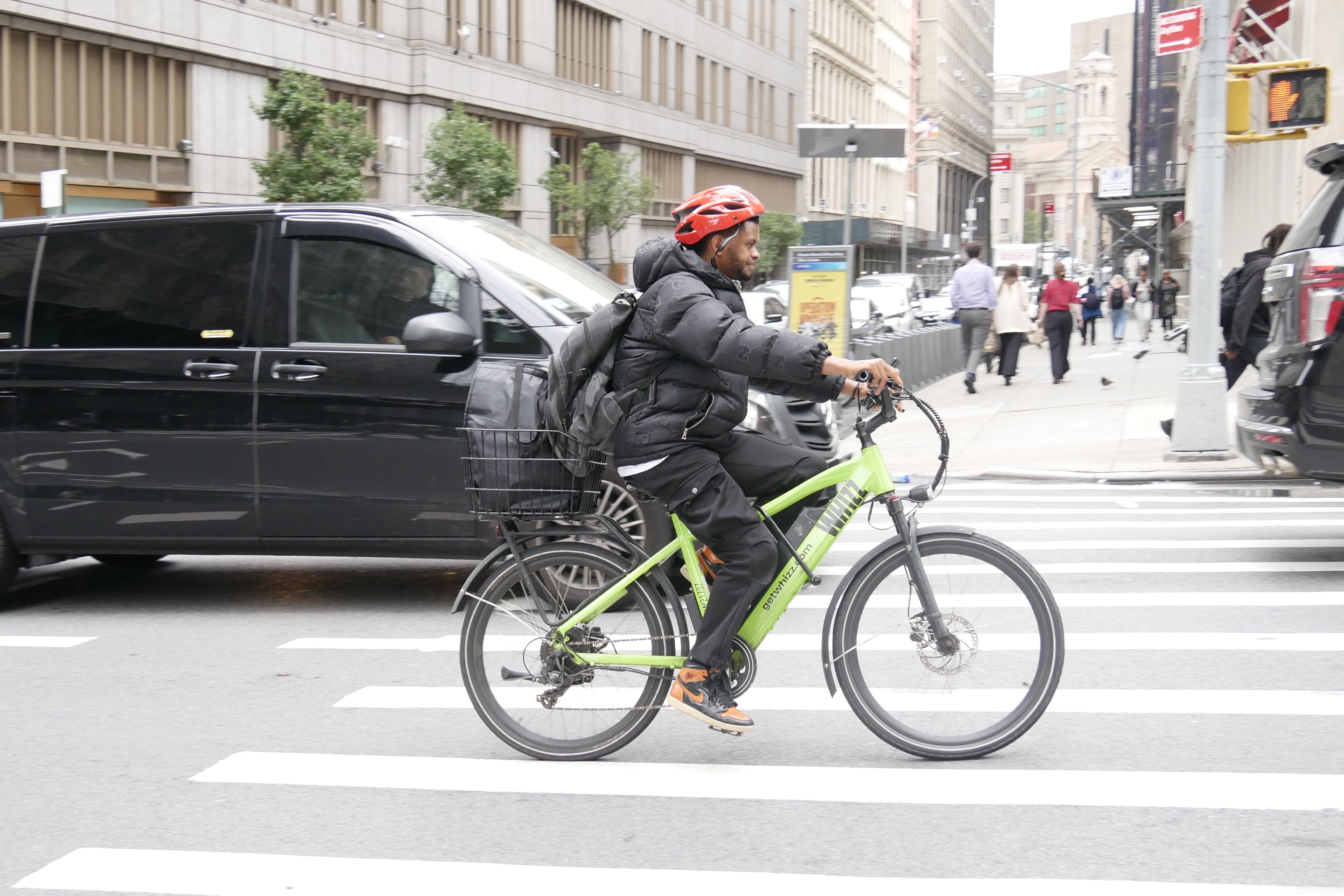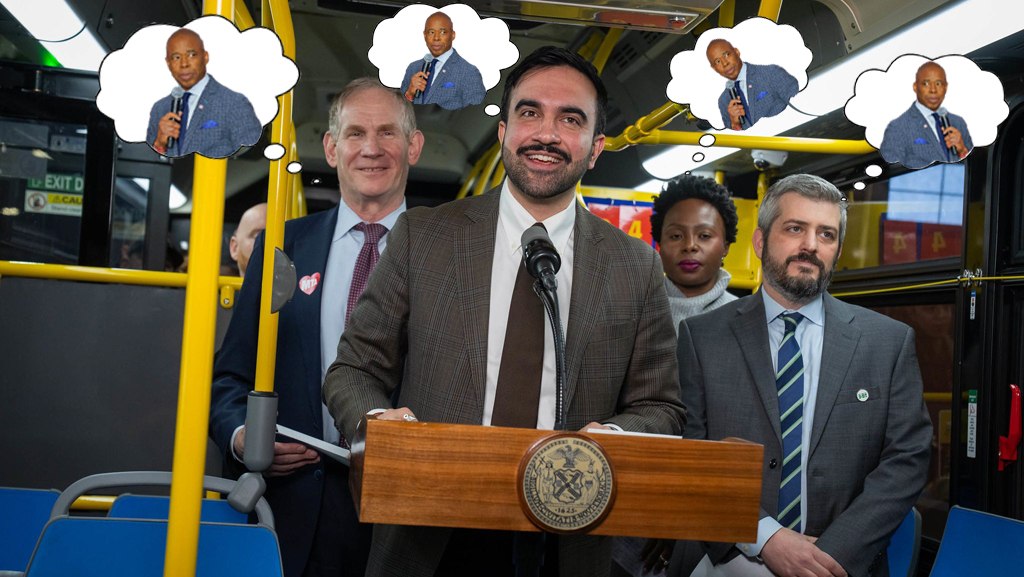
What a bunch of hacks.
City environmental protection officials are now refusing to punish owners of commercial vehicles for idling if the trucks don't have license plates — a move that has enraged the small cohort of citizen enforcers who see it as allowing one illegal behavior (not having a plate) to block enforcement of another illegal behavior (idling).
The Department of Environmental Protection posted the change on its website on Thanksgiving Day.
"The video must also capture all identifying information including the license plate," the new language states. Previously, idling complainants needed only to submit "either the license plate or the company information/logo of the vehicle."
So, in other words, truck drivers who remove their plates can fill the air with as much pollution as they want.
"This is crazy nonsense," said Patrick Schnell, who frequently submits idling reports under the famed "Billy Never Idles" program. "Often vehicles have clearly identifiable numbers, so license plates are not needed to make an identification of a vehicle."

Schnell said he has submitted many complaints featuring trucks that did not have any license plates anywhere — including those where the plate is intentionally affixed to a roll-up back door, rendering it impossible to be seen.
"DEP has rejected multiple cases based on lack of license plate," he said. "Thus, DEP is rewarding companies for not displaying plates by letting them get away with idling — in effect enabling and encouraging companies to not display license plates. I find this extraordinarily concerning."
There's obviously a logical explanation, right? According to DEP spokesman Ted Timbers, the language change stems from DEP's own case against a trucking firm that the city Office of Administrative Trials and Hearings struck down, specifically because of the missing license plate.
"DEP updated the guidance for submitting a report of illegal truck idling to comply with the recent appeals decision at OATH," Timbers said, explaining that OATH, not DEP, "has determined ... the type of evidence ... necessary to uphold a summons for illegal idling." (OATH spokesperson Marisa Senigo declined to comment beyond saying, "The appeals decision speaks for itself.")
The case dates back to Nov. 18, 2022 when an unidentified citizen complainant spotted an idling commercial truck on Albee Square West between Fulton and Wiloughby streets in Downtown Brooklyn. The eagle-eyed complainant submitted a video and pictures as required under the rules, but the truck, indeed, had its plate on a roll-up door. The complainant entered the license plate as "XXXXXX," but also provided the U.S. Department of Transportation registration number and a logo of the company — both prominently featured on the truck.
After a May 8, 2023 hearing, an OATH judge rejected the summons. DEP appealed on the grounds that the identifying numbers and logo "were sufficient to establish an 'identifiable party' even absent the license plate number."
On Oct. 23, 2023, the OATH appeals division — in an unsigned decision — rejected DEP's argument and claimed that without a plate number, the trucking company could reasonably argue that there was no way to know "which of its trucks, if any" had idled.
That rejected appeal is why the DEP issued the new guidance to its ad hoc citizen idling team. On background, the agency reminded would-be idling reporters that any New York State-registered truck would have its license plate on the registration sticker on the front windshield, which is good information ... for anyone who wants to climb onto the cab of a truck to report idling at the risk of personal injury.

The case frustrated another regular idling complainant. "DEP will take any opportunity to let as many idlers as possible off the hook," said the complainant, who requested anonymity because of pending litigation against the city. "Citizen reporters have been trying to get them to do the right thing for ages, and now it has come to suing the DEP."
In one suit filed in April, a complainant claims the DEP will not issue additional tickets if a truck is spotted idling on the same day on the same street, even if evidence is presented to show the truck moved.
In another, also filed this year, a different exhaust-watcher argues that the DEP is refusing to issue summonses against trucks whose operators have fraudulently affixed noncommercial plates even though they are clearly engaging in commercial activity.
And another case showed that DEP did not aggressively challenge a demand for a temporary restraining order from a medical lab company that argued that its vans should be allowed to idle. The company in question, LabQ Clinical Diagnostics, had been issued 3,288 summonses since 2019, most of them during the Covid pandemic, City Hall said.
"DEP rolled over in that case and it's rolling over in the license plate case," said the idling enforcer who requested anonymity. "Now there's a blanket rule: no license plate, no air-pollution ticket ... even where the vehicle has another unique identifier. DEP is creating a road map to companies avoiding pollution tickets — just illicitly remove your plate."
New Yorkers have been submitting tens of thousands of idling complaints against commercial vehicles since 2018 under the city's citizen enforcement program, which awards a portion of the resulting summons to the original complainant. Under the program, nearly 49,000 complaints were made in 2022, according to city data, or roughly 134 per day (substantially more than the 30 per day that were filed in 2021, according to that year's annual report.
It's not the first time the agency in charge of environmental protection has weakened the idling law. In 2022, the agency made a rule change that allowed more trucks to legally idle.
Meanwhile, the NYPD has all but abandoned writing idling tickets at all, Streetsblog recently reported.






